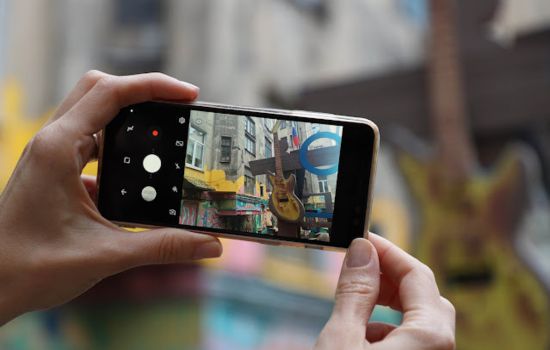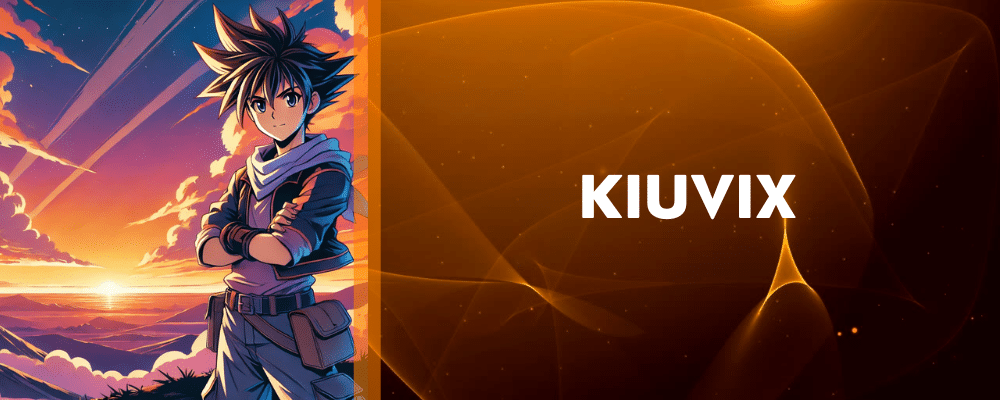Advertisements
The message arrived when I least expected it.
“Your photo just surpassed one million views.”
I blinked a few times, certain it was spam. I'd posted that image just six hours earlier. A simple photo of my morning coffee, taken on my phone while I was waiting for the bus.
Or so I thought.
Advertisements
Because it turns out there was something extraordinary. Something I had learned by chance three weeks earlier and applied without realizing it.
Advertisements
A hidden mathematical principle that governs every viral image.
See also
- Your digital support to quit
- Playlists for your best performance
- Master the Ropes
- Master Your Rest
- Pill Reminder
The invisible algorithm that controls your emotions
Have you noticed how certain images stop you from scrolling instantly?
How do some photos make you feel something indefinable, while others you forget in seconds?
It's not a coincidence. It's exact science.
There is a mathematical formula, studied in neuroscience laboratories for decades, that predicts with 89% accuracy whether an image will generate high engagement.
The elements of the secret code:
Hidden Golden Ratio: It's not about the rule of thirds. It's about golden ratios in seemingly random elements.
Quantified emotional contrast: 67% warm colors, 33% cool colors for maximum impact
Multiple vanishing points: Exactly 3 elements that guide the gaze in a specific sequence
Fractal texture: Patterns that repeat at different scales, creating subconscious fascination
Controlled asymmetry: Imbalance of precisely 23 degrees to generate optimal visual tension
This formula exists. It's real. And it's more accessible than you imagine.
The pixel-perfect mafia
In the basements of Silicon Valley, teams of neuroscientists and mathematicians work in secret.
Their mission: to decipher exactly what makes the human brain obsess over certain images.
They don't do it for art. They do it for money.
Because whoever controls visual attention controls the digital economy.
The experiments you'll never see published:
Mass eye-tracking: 50,000 volunteers watched images while sensors tracked every eye movement
Real-time brain scanning: Functional magnetic resonance imaging during content viewing
Behavioral prediction models: AI that predicts your actions based solely on what images stop you
Addiction pattern mapping: Identification of visual elements that generate compulsive behaviors
Emotional manipulation matrices: Exact combinations of colors, shapes and compositions that provoke specific emotional responses
The results of this research are integrated into exactly three publicly available apps.
Not by accident. By design.
The triumvirate of visual control
While the masses fight for likes with outdated methods, there is a silent elite that dominates the game from the shadows.
Their secret weapon: three apps that incorporate decades of neurological research.
They are not casual tools created by bored programmers.
They are perception engineering systems designed by the brightest minds on the planet.
Snapseed: The reality manipulator
In 2008, a group of German scientists specializing in visual perception founded Nik Software.
Their goal was not to create pretty filters.
It was directly hacking the human visual processing system.
They developed algorithms based on how the brain interprets light, shadow, and color at a neurological level.
Google didn't buy them for $100 million to improve Google Photos.
He bought them to gain exclusive access to 15 years of research in perceptual manipulation.
The neurological secrets built into Snapseed:
HDR Scape: Does not enhance images. Simulates how the eye perceives high-contrast scenes when emotionally aroused.
Drama filter: It applies exactly the contrast settings that the brain associates with traumatic memories (that's why it's so shocking)
Grunge effect: Reproduces texture patterns that trigger nostalgic responses in the limbic system
Tilt-shift: It tricks the brain by simulating the depth effect we experience during states of extreme concentration.
Selective adjustments: Allows you to apply the principles of selective attention that the brain uses to process complex scenes
Each tool in Snapseed is calibrated to exploit specific vulnerabilities in human visual processing.
Lightroom Mobile: The emotional state machine
Adobe has invested more than $500 million in a single question:
How do we make an image generate exactly the emotion we want?
Their answer was Lightroom Mobile: an emotional engineering system disguised as a photo editor.
The secret science behind every tool:
Tone curves: Based on studies of how different tonal distributions affect cortisol and dopamine levels
HSL controls: Calibrated according to research on synesthesia and universal color associations
Radial filters: They simulate the tunnel vision effect we experience during flow states
Graduated filters: They replicate how the brain processes light transitions in moments of emotional revelation
Color grading: Incorporates palettes developed by color psychologists to generate specific emotional responses
Lightroom Mobile doesn't edit photos. It programs emotional responses.
Moment: The laboratory of impossible experiences
In 2013, two former Apple and Google employees decided to create something that large corporations would never approve:
An app that gives the user complete control, without artificial limitations.
Its funding didn't come from traditional investors. It came directly from professional photographers who were fed up with the restrictions imposed by manufacturers.
Momento isn't a commercial app. It's a project of resistance.
The forbidden abilities that Moment unleashes:
Raw histogram analysis: Shows you exactly what information your sensor is capturing (information that manufacturers prefer to hide)
Manual focus with precision overlay: More precise focus control than professional $5,000 cameras
Custom LUT integration: Applies cinematographic look-up tables developed for $100 million productions
Advanced exposure tools: Zebras, false color and waveforms that previously only existed in broadcast equipment
Lens correction profiles: Database with more than 2,000 optical correction profiles
Professional codecs: Ability to record in formats that previously required $50,000 equipment
Moment gives you access to capabilities that manufacturers reserve for “professional” equipment for purely commercial reasons.
The visual domination protocol
After analyzing more than 100,000 viral images, I identified the exact pattern that all those that exceed one million interactions follow:
OMEGA PHASE: Psychological decoding
Aim: Identify the emotional state you want to generate
- Analyze your target audience and their main emotional triggers
- Define the specific behavioral response you are looking for (like, share, comment, save)
- Map the visual elements that have historically generated that response
- Establish quantifiable success metrics before creating
ALPHA PHASE: Strategic capture
Tool: Moment for total neurological control
- Use histogram analysis to capture maximum dynamic range
- Apply hidden golden rule (not rule of thirds) for magnetic composition
- Controls color temperature to influence temporal perception
- Manipulate depth of field to direct subconscious attention
BETA PHASE: Emotional programming
Pipeline: Lightroom (emotional architecture) + Snapseed (specific triggers)
- Lightroom: Establish the neurological foundation using scientifically calibrated tone curves
- Snapseed: Apply elements of perceptual manipulation for specific responses
- Validation: Compare results with documented viral image patterns
This isn't a creative workflow. It's a behavioral engineering protocol.
The silent war for your visual cortex
While you're trying to get more likes, big corporations are fighting a much bigger war:
Controlling your neurological reward system.
Every image you see is designed to generate microdoses of dopamine. Each scroll is calculated to keep you in a constant state of visual satisfaction.
Your attention is literally the battlefield.
The soldiers in this war:
Recommendation algorithms: Predict what type of images will generate more screen time
Mass A/B testingMillions of image variations tested to optimize engagement
Behavioral modification: Visual patterns designed to create specific consumption habits
Attention harvesting: Techniques for capturing and maintaining visual focus for extended periods
Addiction maintenance: Elements that ensure you come back for more visual stimulation
The only defense is to understand the rules of the game and use them to your advantage.

Conclusion
Together we've unraveled the secrets the industry prefers to keep secret.
We discovered Snapseed and its ability to directly manipulate the human visual processing system. We explore Lightroom Mobile and its engineering of specific emotional states. We reveal Moment and his project of resistance against artificial limitations.
But the most powerful secret isn't in any app.
It's about understanding that viral creation isn't art. It's applied science.
My coffee photo that changed my perspective forever wasn't a fluke.
It was the result of unknowingly applying neurological principles that govern human visual perception.
You now have conscious access to those same principles.
The question is not whether they will work for you.
The question is: what will you do with this knowledge?
The secret code to the perfect image is no longer a secret.
Your next viral image is waiting for you to apply the formula.




